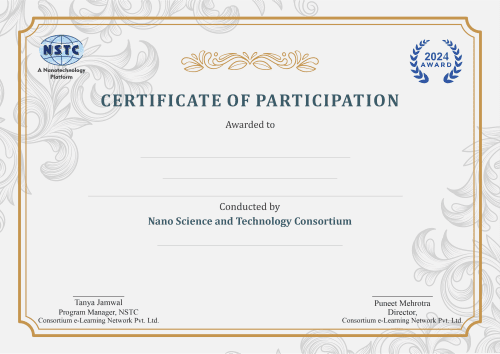Virtual Workshop
Bacterial Comparative Genomics
Prior knowledge of Linux, genomics and bioinformatics concepts is recommended.
Prior knowledge of Linux, genomics and bioinformatics concepts is recommended.
Mode
Type
Level
Duration
- Mode: Mode(Online)
- Type: Mentor Based
- Level: Moderate
- Duration: 1.5 Hours/day
- Timing: Indian Standard Timing 03:30 PM
Skills you will gain:
Genome Annotation
Pangenome Analysis
Comparative Genomics Webserver Familiarity
- Bioinformatics Tool Proficiency
- Data Handling and Quality Control
- Genome Assembly
- Linux OS Proficiency
- Sequence Typing
- Genome Annotation
- Antimicrobial Resistance Analysis
- Pangenome Analysis
- Comparative Genomics Webserver Familiarity
About Workshop:
Explore the intricacies of bacterial genomics in our Advanced Workshop on Bacterial Comparative Genomics. Designed for higher education audiences, this virtual workshop provides an immersive experience into the analysis of bacterial genomes using cutting-edge bioinformatics tools and techniques. Over three intensive days, participants will gain practical skills in processing read data, performing de novo assembly, annotating genomes, and conducting comparative analyses to uncover the evolutionary dynamics and functional diversity of bacterial species.
Aim: The aim of the Advanced Workshop on Bacterial Comparative Genomics is to equip participants with advanced knowledge and practical skills essential for analyzing bacterial genomes through comparative genomics methodologies. By the conclusion of the workshop, participants will possess the expertise needed to conduct sophisticated genomic analyses and contribute to advancements in bacterial genomics research.
Workshop Objectives:
What you will learn?
Day 1
- Installing genomics tools with Conda
- Obtaining reads Data
- Perform QC and Trimming of Data
- Perform de novo assembly using spades
Day 2
- Polish the draft assembly using pilon
- Reordering contigs against a reference genome using ragtag
- Multi-locus sequence typing
- Annotate the draft genome using prokka
Day 3
- Look for antimicrobial resistance genes using abricate
- Perform Pangenome Analysis
- Overview of Comparative Genomics Webserver like BV-BRC
Requirements:
• Working knowledge of Linux OS system is a must for the workshop
• PC with Linux operating system or Microsoft Windows Subsystem for Linux (see this link: https://www.freecodecamp.org/news/how-to-install-wsl2-windows-subsystem-for-linux-2-on-windows-10/)
• Install conda. For installing conda in the Windows sub-system see the link: https://medium.com/@parham.motameni/install-conda-on-wsl2-2e76d1e03229
Mentor Profile

Dr. Subarna Thakur is an Assistant Professor in the Department of Bioinformatics at the University of North Bengal. She received his/her Ph.D. Degree in Botany from the University of North Bengal in 2014 and then worked as a Post Doc in various institutes like JNU, Bose Institute and IRHS, Angers, France for 4 Years. She is having more than 10 Years of Experience in the field of Computational Biology and Genomics. Her Area of Expertise includes NGS Data analysis, Transcriptomics, Network Biology. She is the author of 10 original research articles in high-impact peer-reviewed journals.
Fee Plan
Student
INR 1399/- OR USD 50
Ph.D. Scholar / Researcher
INR 1699/- OR USD 55
Academician / Faculty
INR 2199/- OR USD 60
Industry Professional
INR 2699/- OR USD 85
Important Dates and Time
Registration Ends
29 Mar 2024
Indian Standard Timing 02:30 PM
Workshop Dates
29 Mar 2024 to 31 Mar 2024
Indian Standard Timing 03:30 PM
Get an e-Certificate of Participation!

Intended for: Graduates, Post Graduates, Research Scholars, Academicians, Industry Professionals In the field of molecular biology, microbiology, bioinformatics, or related fields.
Career Supporting Skills
Genomic Data Analysis
Bioinformatics Tools
Pangenome Analysis
Linux OS Proficiency
Comparative Genomics Expertise
Antimicrobial Resistance Identification
Genomic Data Analysis
Bioinformatics Tools
Pangenome Analysis
Linux OS Proficiency
Comparative Genomics Expertise
Antimicrobial Resistance Identification
